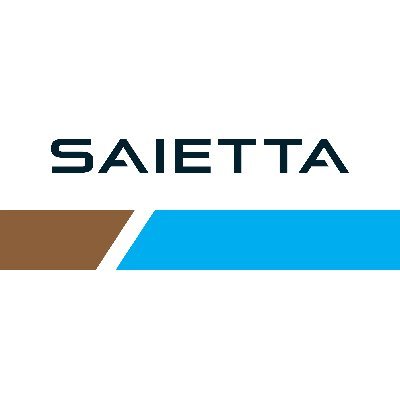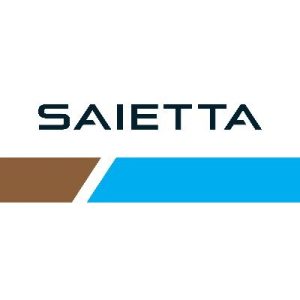Saietta Group plc (LON:SED) Executive Chairman Tony Gott caught up with DirectorsTalk to discuss their collaboration with AVTEC, what’s driving demand for cost effective EV solutions, production capability in India, validation of their solution, future for the business, targeting other markets and expanding on the eDrive solution product range.
Q1: Tony, this collaboration with AVTEC, it’s a real breakthrough moment for the company. What are the various synergies that working with AVTEC will bring to Saietta?
A1: It’s really very significant and anyone that’s been associated with the automotive industry, especially in recent years, has recognised the importance of a secure supply chain. We’ve all heard stories about computer chips and so being difficult and therefore undermining some of the OEMs’ performance.
In setting up our operations in India, it’s critical for our experience to get that supply chain in place, and so today with this announcement, we’re super proud and pleased to be working in partnership with AVTEC.
For those that don’t know the company, they’re the automotive division of a very very large company called CK Birla Group, also centred in India but global. CK Birla are a $2.8 billion Indian multinational conglomerate, massively important in many sectors, and AVTEC is their automotive division, again based in India.
They supply a vast array of components including transmissions, which is our relationship with them, to basically all the famous names in the world for global OEMs, so BMW, Ford, General Motors, Daimler Benz etc.
So, we’re so proud and really think it’s a fantastic relationship we have with AVTEC now on two levels really i), just as a pure supplier of a major component of our eDrive systems in India, which is the transmission unit, and ii) as a partner in onward marketing of our eDrive systems across those OEM clients.
To be alongside a company which is so trusted as AVTEC, in India, is a really important foundation stone for our growth in India. It’s brilliant news! You could say ‘Ok, they’ve got a supplier’ but actually in the automotive world, this is very significant.
Q2: Your eDrive solution puts you now right at the heart of the revolution in lightweight eMobility in India. What’s been driving this enormous demand for a cost effective EV solution that’s also ‘Made in India’?
A2: ‘Make in India’ is v important – that’s a national directive within the country and of course, there’s tremendous advantages for us as a company, hence the joint venture with Padmini, another very powerful supplier in the Indian market.
First of all, what makes us in a great place?
Firstly, the technology that we’re using now in India: our Axial Flux motor has some extraordinary performance characteristics. It’s high torque at low revs and low voltage which means it’s very very high efficiency on the urban cycle, and more importantly, it’s at the right price. So, for us, this is a breakthrough technology. That is why we launched the company onto the AIM market in ’21 and therefore, the base performance of our electric motor technology brings a real competitive advantage in the market.
In addition to that, we supply not just the motor but the invertor and the transmission and the vehicle control unit, the VCU – all four components of an eDrive. Very very few companies globally have the ability to supply all four of those as a complete system into the OEMs. So, these things set us apart from others, and it’s also about timing. This last year, for the first time, 1 million vehicles went electric in India. By 2030, by various consultant analysts, the volumes are scheduled to grow to anywhere between 10-15 million vehicles a year moving to electric new vehicles every year. We’re right in this beautiful, sweet spot now, being at the start of that growth with some technology which has some real advantages.
On the back of the major contracts we announced late last year with a global OEM operating out of India, we then we have a further 11 new enquiries from other major OEM companies – those that you have heard of, but I can’t mention, and we’re in detailed commercial discussions, timing and technical discussions. They’re very very interested in seeing how we might be able to help them in the future, from our new factory which is now being created in India.
So, for many reasons, whether it’s tech, market position, supply chain partners, it’s all coming together in a cohesive way for us to take advantage of that very exciting time.
Q3: You’ve talked about demand there, just in terms of meeting the domestic demand in India, could you talk us through the production capability?
A3: It’s coming together now. We’re heading towards the next few months; 2/3/4 months’ time, the establishment of the full manufacturing capability in our joint venture in India.
The production lines are now designed, the capital equipment procurement is now beginning to start, site selection has happened, teams are in place, and therefore, our pre-production ramp up is now all planned. Again, with the benefit of having these very very trusted capable supply chain partners in place that underpin all of that.
Importantly, I think it’s also interesting to recognise the benefits of having our team in Sunderland, experts in electric motor manufacturing, and the most difficult item to make new in India is what we call the ‘stator’. It’s the thing at the heart of our motor which is very complex and requires very sophisticated manufacturing techniques to make, at low cost. All of that process has been in pilot production in Sunderland.
We’re now at a cycle time of around 34 minutes per motor up there, and motors are going on the shelf, in stock, to be able to guarantee the supply of that highly technical part to the first production call in India.
So, those parts will be made in India as soon as we can feel safe that the technology can now be shipped across but every possible way of mitigating any risk to the start- up of production is already underway. So, things are looking really good and there’s no key concerns at the moment in that process.
What we want to be able to do is to come back to you now over the next few months, very regularly, to bring people on board in this exciting process that’s building up to the product launches which will happen mid-summer. It’s going to be a great thing to watch happen now, I think, and we would like to include everybody in that.
Q4: You have also announced a first contract supply to a leading OEM in the Indian lightweight market. It’s a very encouraging validation of the demand for your solution.
A4: Yes, it’s absolutely critical. When the company floated, it had some tech, and it thought it was correct for this market. We understood the market potential was there and so on, but we needed to prove to everybody that that was really all true. So, the agreement with this global OEM, operating in India, is a complete validation.
This is a large contract for a flagship product. They’re very proud to be associated with it and I think we’ll see in the launch of the product later in the year, that they’ll be featuring the eDrive as part of the product. It’s a very special part of it so we’re super proud.
To have that validation of us, as a company and our approach to the market through the joint venture and supply agreements is massively important, and we hope it’s the first in a series of dominos which will then fall over for other people to take advantage of what we can offer them.
Q5: What are your thoughts for the future of the business?
A5: Well, I think its focus is in our core technology and our core markets, which is India. We’ve always felt that the mass transition of electrification of vehicles will really happen from East to West. We, here in the West, naturally think of normal passenger cars as a leading part of that transition but in actuality, the market for vehicles really is, the huge volume of it, comes from the lightweight sector in an urban environment.
Remember, our mission was helping to clean up the air in the world’s major cities. India has five of the most highly polluting cities in the world and therefore, there’s a huge government and national movement to help create the solutions for that. They’re all lightweight vehicles over there really. It’s a dominant sector, and they’re all going electric so the potential is enormous so that’s our focus in India.
We also have opportunities in heavy duty, and we announced last year a joint development agreement with a major American company on that to produce some new technology which would help the transition to electrification of heavy duty vehicles in that market. That’s going very well as well.
Also in the marine sector, we still face a great opportunity with that, and we’re going to putting extra focus on that over the coming months, to get that going in Europe.
So, we have existing projects and clients now in the three continents, major ones in Asia, growing ones in Europe and the US for our Axial Flux technology. We also have opportunities which are going very well with the joint agreement on heavy duty, mainly focused in America.
So, those angles are all very positive for the business moving forward.
Q6: You mentioned a domino effect that you were hoping for and a pipeline of enquiries. Should investors anticipate that Saietta will target other markets with this solution, and perhaps expand on the eDrive solution product range?
A6: Yes, in time we will. At the moment, we need to really establish our presence in the market through delivery so we’re very conscious that over the next few months, we’ll involve people in the final delivery of major volume supply in that market.
That’s the first step and without concentrating and dreaming too much on the next step, that it the important thing now for the business to achieve. I’ve got great confidence that will be achieved without problem. Once we’ve achieved that, then the other opportunities will, I suspect, fall into place because the demand is so high.
So, it’s now beginning to really transition from an R&D company into a true manufacturing turnover growth business. Our EBITDA is forecast to go positive for the first time in the very early part of next year, and then the company is on a really substantial self-determining growth.
So, that first step is to make sure that’s done professionally, and in the meantime we’re in discussion with a whole load of other people. I’d be surprised if we weren’t able to announce another one or two major contracts this year in our major target market in India, alongside other developments that are maybe a bit more organic.
When we do announce those things, another part of the business strategy is we’d like to be in a position where we can announce that they’re fully funded as well, so that the business is then really stabilised and growing very strongly in a hugely potential growth market.


